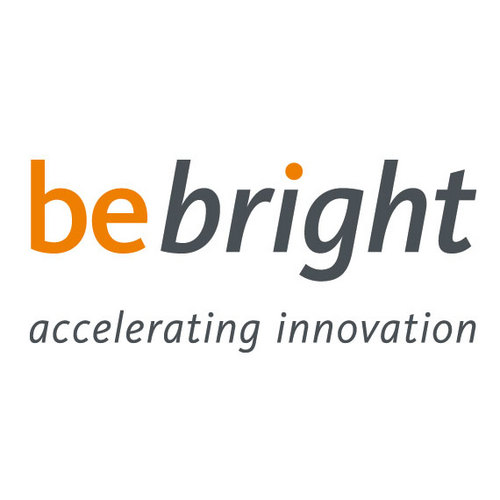

BeBright

Utrecht, Netherlands The
December 2016
Management consultant - nonprofits
Service with Minor Environmental Footprint
Belgium,
Netherlands The
BeBright is a strategy and innovation consultancy firm that aims to strengthen the innovative competencies of organizations and the vitality of society as a whole. With a passionate team of experienced strategists and driven, curious consultants and researchers, BeBright aims to strengthen the innovative capacity of organizations, in order to achieve lasting improvement and renewal with and for customers. BeBright connects their knowledge and networks across markets, sectors and borders in order to achieve collaborative sustainable growth. BeBright joined the B Corp Community because of the shared desire to use the power of markets to solve social and environmental problems, with the goal of more shared and durable prosperity for all. For BeBright as an organization it is important to meet the highest standards of verified social and environmental performance, public transparency, and legal accountability. BeBright seeks to strengthen the vitality of society as a whole by developing a widely supported and inspiring vision and strategy for the future and creating innovation networks and communities. Transcending boundaries when innovating new markets, new strategies, new marketing and new products and services.
Overall B Impact Score
Governance 21.7
Governance evaluates a company's overall mission, engagement around its social/environmental impact, ethics, and transparency. This section also evaluates the ability of a company to protect their mission and formally consider stakeholders in decision making through their corporate structure (e.g. benefit corporation) or corporate governing documents.
What is this? A company with an Impact Business Model is intentionally designed to create a specific positive outcome for one of its stakeholders - such as workers, community, environment, or customers.
Workers 28.3
Workers evaluates a company’s contributions to its employees’ financial security, health & safety, wellness, career development, and engagement & satisfaction. In addition, this section recognizes business models designed to benefit workers, such as companies that are at least 40% owned by non-executive employees and those that have workforce development programs to support individuals with barriers to employment.
Community 33.1
Community evaluates a company’s engagement with and impact on the communities in which it operates, hires from, and sources from. Topics include diversity, equity & inclusion, economic impact, civic engagement, charitable giving, and supply chain management. In addition, this section recognizes business models that are designed to address specific community-oriented problems, such as poverty alleviation through fair trade sourcing or distribution via microenterprises, producer cooperative models, locally focused economic development, and formal charitable giving commitments.
What is this? A company with an Impact Business Model is intentionally designed to create a specific positive outcome for one of its stakeholders - such as workers, community, environment, or customers.
Environment 5.0
Environment evaluates a company’s overall environmental management practices as well as its impact on the air, climate, water, land, and biodiversity. This includes the direct impact of a company’s operations and, when applicable its supply chain and distribution channels. This section also recognizes companies with environmentally innovative production processes and those that sell products or services that have a positive environmental impact. Some examples might include products and services that create renewable energy, reduce consumption or waste, conserve land or wildlife, provide less toxic alternatives to the market, or educate people about environmental problems.
Customers 3.0
Customers evaluates a company’s stewardship of its customers through the quality of its products and services, ethical marketing, data privacy and security, and feedback channels. In addition, this section recognizes products or services that are designed to address a particular social problem for or through its customers, such as health or educational products, arts & media products, serving underserved customers/clients, and services that improve the social impact of other businesses or organizations.